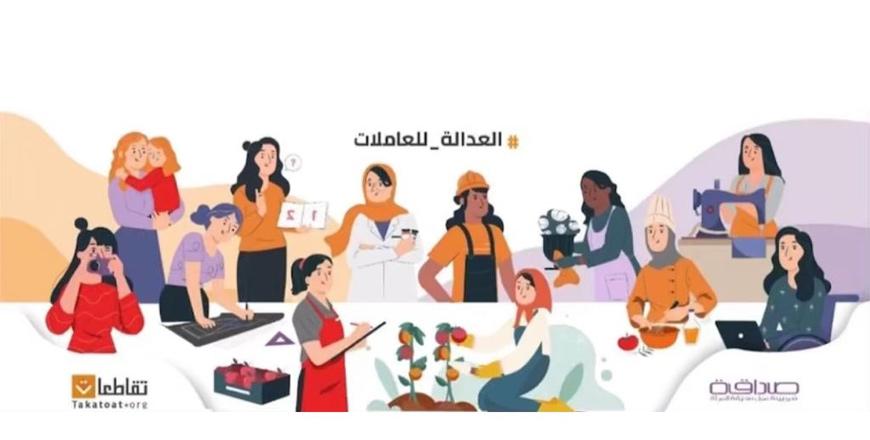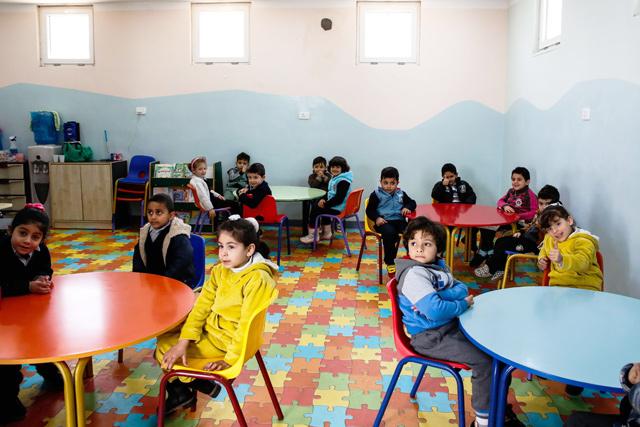You are here
‘Justice for Women Workers’ campaign launched
By Maria Weldali - May 03,2021 - Last updated at May 04,2021

Writing in Arabic reads: ‘Justice-equity for women workers (Image courtesy of SADAQA Instagram page)
AMMAN — Driving attention towards working women’s rights, a campaign titled “Justice for Women Workers” was launched on the occasion of Labour Day, to bring a clearer picture of the reality of the situation in Jordan.
“Living conditions changed dramatically since the onset of the pandemic. The crisis exacerbated long-existing workplace gender gaps and inequalities, as well as economic and social disparities, especially in developing countries with pre-existing women-related issues,” SADAQA executive board member Sahar Aloul, told The Jordan Times on Sunday.
Launched by SADAQA, a Jordanian NGO advocating for a women friendly environment in the workplace, together with Takatoat, a local feminist collective, the campaign aims to highlight the most prominent violations of economic rights confronting women amid the ongoing pandemic which further increased the burden of unpaid domestic labour on working women, due to school, kindergarten and daycare closures, according to a statement sent to The Jordan Times.
The campaign also aims at “finding social security glitches and exposing the absence of the implementation of laws and regulations regarding issues relevant to women in the labour world,” the statement said.
Takatoat Executive Director Banan Abu Zain Eddin, in the statement, has deemed Labour Day an occasion to reiterate the rights of women workers across various sectors, whether they were Jordanians, migrants or refugees.
The statement added that 47 per cent of women have lost their jobs in the formal sector, while 90 per cent of women working in the informal sector have completely lost their income during the closure period.
Women in Jordan face a myriad of obstacles when attempting to enter the workforce or while being economically active, according to Aloul who added that females are at greater disadvantage compared with males. Among the issues mainly facing working women are the gender pay gap, occupational segregation, workplace harassment, the absence of adequate social protection and economic inequality, she said.
“The first people who have been given up on were women,” Aloul said, adding that the pandemic may have reversed decades of progress on workplace gender equality.
According to the Department of Statistics, women’s economic participation in Jordan stood at only 14.2 per cent in 2020, meaning that only one out of seven women is economically active. Women’s unemployment rate outpaced that of men during the fourth quarter of 2020, where unemployment rate reached 22.6 per cent among men compared with 32.8 per cent among women.
“All of the policies and decisions dealing with the current health crisis have left women and their needs at the margins of society, because they did not take into consideration the feminist perspective, therefore those policies have been patriarchal,” Aloul said.
Related Articles
AMMAN — A local organisation has called on the government and labour entities to adopt practical measures to encourage the establishment of
AMMAN — Experts and parliamentarians on Thursday discussed the adoption of different models for workplace daycare centres, in order to boost
AMMAN — The civil society in Jordan has formed Article 72 Coalition to lobby the deputies for amendments in the Labour Law that guarantees t














